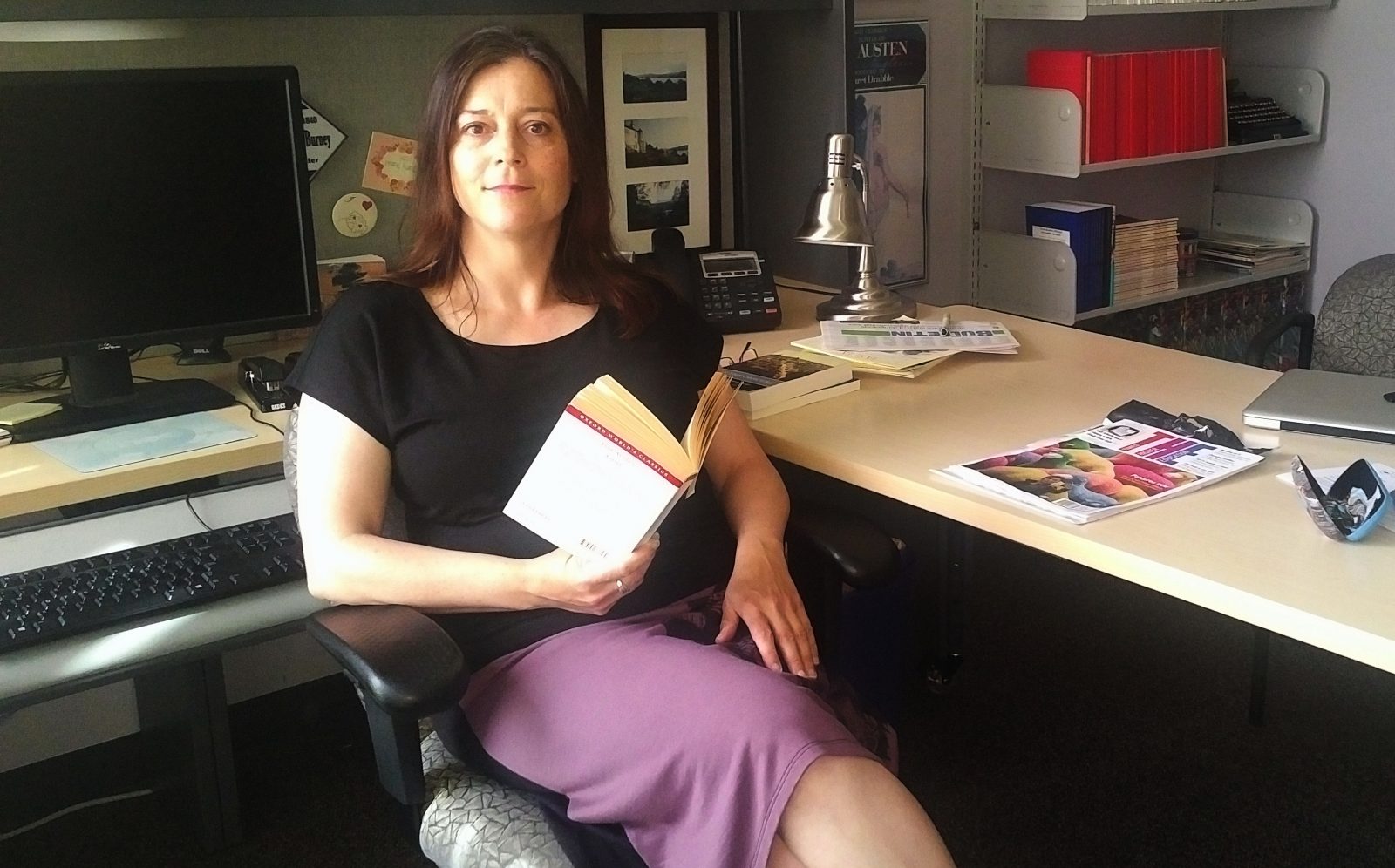 Barbara Seeber in her Brock office: "We did not ancitipate this kind of response... We're literary critics."
Barbara Seeber in her Brock office: "We did not ancitipate this kind of response... We're literary critics."Brock University English professor Barbara Seeber says she is “floored” by the international discussion triggered by a new book she co-authored.
The Slow Professor, which Seeber wrote with Queen’s University English professor Maggie Berg, has not only created a buzz among academics, it’s flying off the bookshelves and getting noticed in the mainstream news media.
The book examines what its authors call the “corporatization of higher education” in Canada and beyond. Seeber says the symptoms include “the increasing casualization of labour, rising workloads for faculty, a shift to managerialism, and the idea that the student is a consumer. Basically treating higher education on a business model. We are adapting the principles of the slow movement as a way of countering corporatization.”
After its publication in March, The Slow Professor struck a chord with academic practitioners and pundits. It has been discussed, and its authors interviewed, in sector publications like University Affairs in Canada and Inside Higher Ed in the United States. In May it was named Book of the Week by the UK-based Times Higher Education supplement.
But media attention has also jumped the walls of the “trade press” and turned up in places like National Public Radio in the U.S. and the Globe and Mail here at home. Then there are the blogs and social media posts — and emails coming to the authors from as far away as Australia.
Seeber is a scholar in 18th– and 19th-century fiction, and in 2014 won the Excellence in Teaching Award for the Faculty of Humanities. She has written two previous books. Neither stirred up anything like this.
“We did not anticipate this kind of response,” Seeber said recently in her Brock office, still seeming a bit bemused by all the attention. (Moments earlier, a passing colleague had playfully teased her for being a “celebrity”.)
“This is out of our comfort zone. We wrote this book to reach a wide audience, but didn’t think it would go beyond the academy. We’re literary critics: I work on Jane Austen and Maggie works on the Brontes. We toil in obscurity.
“But we’ve had a of of really positive responses from people. I think this is evidence that people want change.”
Seeber didn’t know how many copies of the book had been printed, but said the first edition had sold out.
In fact, just 12 weeks after first publishing, the book is already on its sixth printing. Print runs for scholarly works are smaller than for commercial books, and technology now makes it practical to produce as few as 400 or 500 copies at a time.
But in this case, said a source at University of Toronto Press, “demand for this one has just kept coming from universities, from bookstores and from individuals.”
“This one has been a lovely surprise.”








